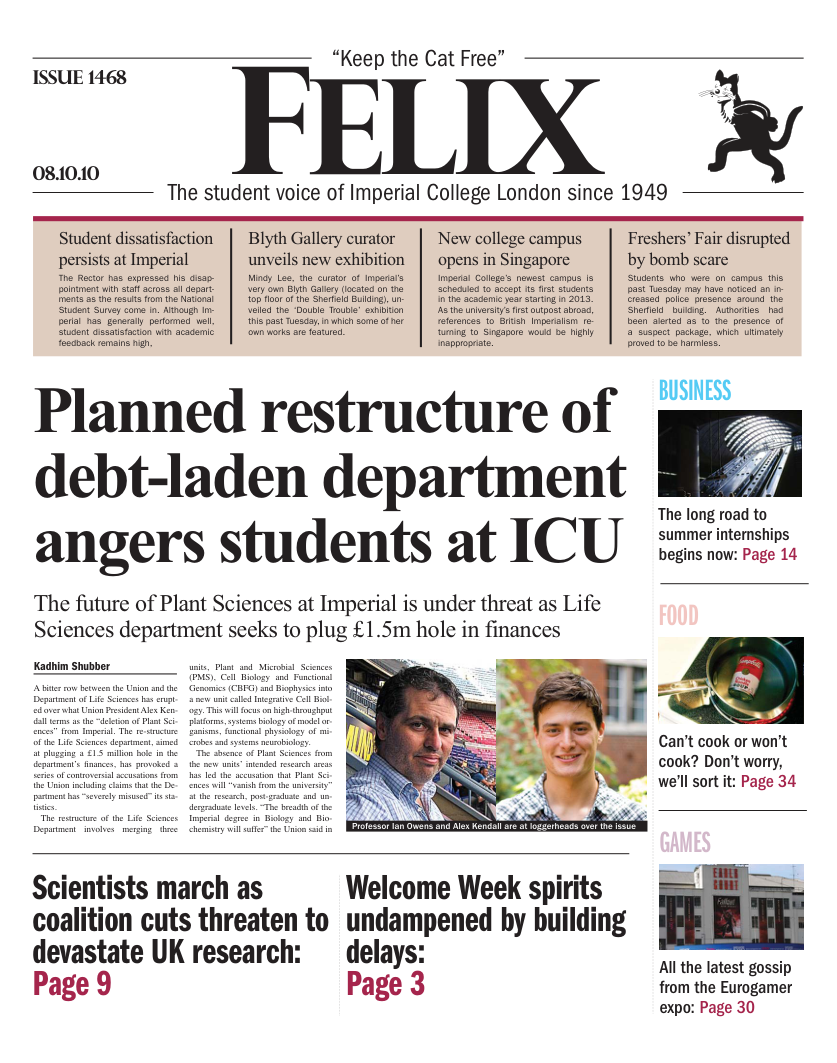How will the cuts in the Life Sciences Department be affecting you?
An Editorial on the Life-Sciences Restructure
There is no question that the proposed restructure will adversely affect the students in the short-term. Academics will have to adapt themselves to new areas of research or be let go, researchers in the plant sciences will be less able to follow programmes here, and the breadth of an undergraduate biology degree will be under threat.
In such circumstances it is the Union's duty to speak up for its members, and we applaud its strong stance in their defence. Nevertheless, the Union's refusal to accept the College's financial position leaves it open to accusations of shortsightedness.
The department in question has been running a deficit of almost £750,000 for the past three years. Of the five sections under its jurisdiction, it considers two to be underperforming from the point of view of research quality and profitability. The debate over whether the department is right to pinpoint these two sections has been long and ultimately uninspiring. The figures in question have been interpreted in two radically different ways, with the correspondence between the Union and the Life Sciences department abounding in discussions of means, medians, box plots and statistical outliers.
However the figures are interpreted, we believe Dr. Ian Owens is justified in refusing to "insult" his academics by telling them that their jobs were dependent on a statistical line in the sand.
By far the more interesting question is not whether these two sections are underperforming, but why. The Union's stance on this issue is very clear. These are the sections which devote the most time to teaching - an activity which they feel the department views as an unnecessary luxury permitted only to profitable research groups.
The response given by the department is unquestionably more financially hard-nosed than we at Felix would have liked, but there is no reason for the Union to level accusations of malice or deception. The department has set commitment to teaching as one of its essential criteria for staff retention, takes great pride in excellent tuition, and constantly emphasises the equivalent teaching burden spread across its staff.
While the perennial debate over the relative importance of research and teaching is essential to the ensured safety of both, it must be conducted in its proper context.
As will be made painfully clear to all who read through the news pages of this issue, science funding in this country will not be spared the austerity measures meted out to all areas of public spending. Cuts will have to be made. And if the College is to preserve its reputation as a centre of scientific excellence in a country where science is set to take a plunge in the national priority list, it needs to prioritise those activities which allow it to keep its head above the water.






